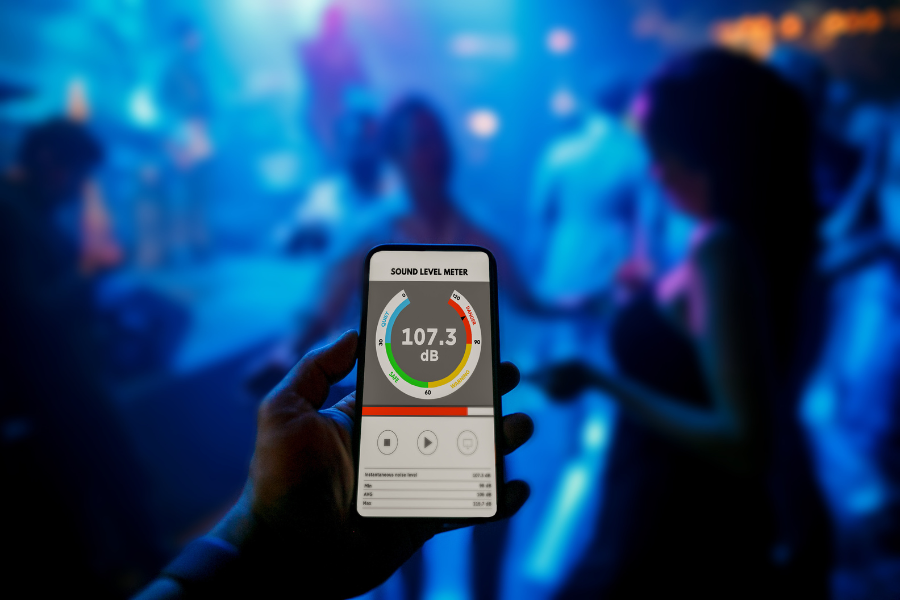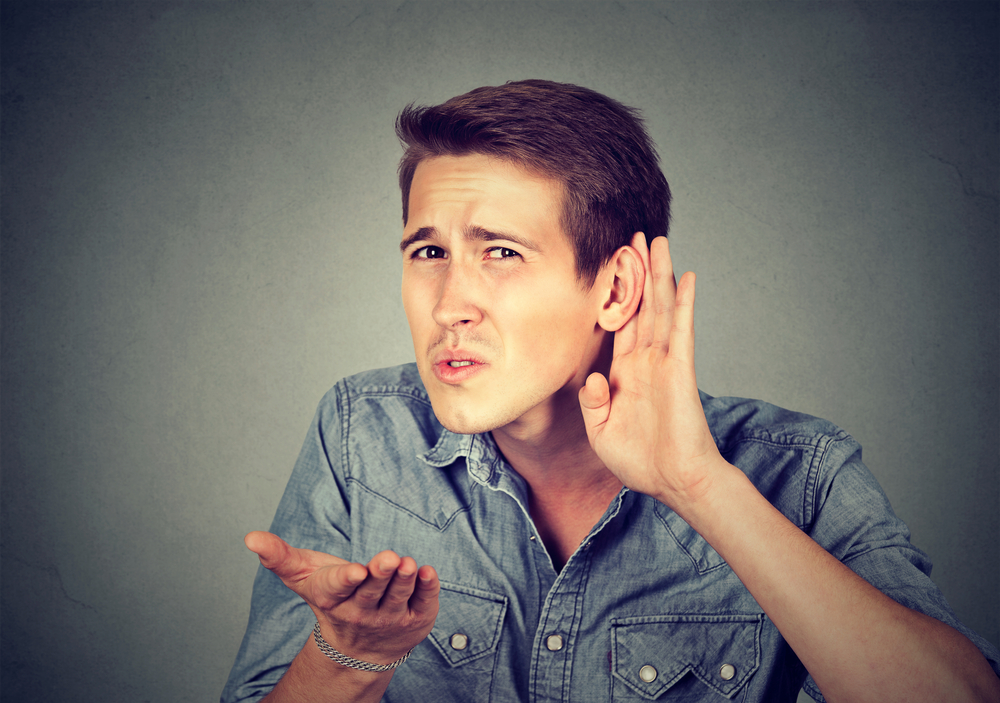Hearing loss is a common problem that affects millions of people around the world. Whether it is due to natural aging, exposure to loud noises or certain medical conditions, hearing loss can significantly impact the quality of life of those who suffer from it. Unfortunately, many people don’t realize they have hearing loss until it reaches an advanced stage. This is why it is important to be aware of the top signs that you may be suffering from hearing loss.
(1) Difficulty hearing in noisy environments.

If you find it hard to follow conversations in crowded places such as a party, a restaurant, or a busy street, it could be a sign that you have some degree of hearing loss. As the brain struggles to separate the background noise from the voices you are trying to hear, it can cause fatigue, frustration, and social isolation.
(2) Asking others to repeat themselves.
If you frequently ask people to repeat themselves, you may have hearing loss. This is especially true if you have to ask them to repeat themselves multiple times or if you find yourself turning up the volume on the TV or radio.
(3) Ringing or buzzing in the ears.

Tinnitus, a ringing or buzzing sound in the ears, is a common symptom of hearing loss. It can be a sign of damage to the auditory nerve or a side effect of certain medications. Tinnitus can be distracting and make it harder to focus on conversations or tasks.
(4) Difficulty hearing high-pitched sounds.
As hearing loss progresses, it often affects the ability to hear high-pitched sounds such as the chirping of birds, the beeping of a microwave, or the ringing of a cell phone. This can be particularly frustrating as it can make it difficult to hear alarms and other important sounds.
(5) Difficulty hearing consonants.
If you find consonants, such as “s” or “f,” are difficult to distinguish, it may be a sign of hearing loss. This can make it challenging to follow conversations or understand what is being said.
(6) Turning up the volume of electronic devices.
If you find yourself frequently turning up the volume of your phone, computer, or other electronic devices, it could be a sign of hearing loss. This is especially true if others around you complain that the volume is too loud.
(7) Avoiding social situations.
Hearing loss can cause social isolation as it becomes increasingly difficult to follow conversations and interact with others. People with hearing loss often avoid social situations altogether or limit their participation, leading to feelings of loneliness and depression.
(8) Misunderstanding or misinterpreting conversations.
If you find yourself frequently misinterpreting or misunderstanding conversations, it may be due to hearing loss. This can lead to confusion and embarrassments in social and professional situations.
(9) Fatigue and headaches.

Because it takes extra effort to strain to hear and process sounds, people with hearing loss often become fatigued more easily. Accompanying headaches could also develop.
(10) Frequently asking people to repeat themselves.
If you find yourself frequently asking others to repeat what they have said, it may indicate a hearing problem.
(11) Turning up the volume.
If you find yourself turning up the volume on the television or radio, it may be a sign of hearing loss. This can also be a potential sign of hearing damage if frequent loud noises have caused hearing problems.
(12) Social isolation.
If you find yourself avoiding social situations or not participating in group conversations, it could be due to hearing difficulties.
(13) Fatigue after social events.
Struggling to hear and follow conversations can be exhausting, resulting in fatigue after social events.
(14) Loss of balance.
Hearing and balance are closely linked. If you experience dizziness or problems with your balance, it may be due to hearing loss.

Hearing loss can be a gradual process, and many people may not even realize they have a problem until it becomes significant. If you notice any of the signs mentioned above, it may be time to take action. Consult with a hearing healthcare professional to assess your hearing and determine the best course of action for treatment. Remember, protecting your hearing is essential to staying connected and engaged with the world around you. Make sure to take preventative measures, such as wearing earplugs in noisy environments and keeping the volume down on personal listening devices, to preserve your hearing for years to come.
Written by: Kayleigh O’Reilly
About the Author: Kayleigh O’Reilly is a freelance writer who loves to walk on the beach, listen to jazz music, and play ball in the neighborhood park with her black lab. She is active as a volunteer for a local food bank. On occasion, she is a guest writer for Smart Strategies for Successful Living.
Discover More…
- Unlock the secret to a happier, healthier lifestyle by delving into additional captivating articles on our website at: Smart Strategies for Successful Living.
- Enjoy our uplifting and inspiring videos on our YouTube channel at: CLICK HERE.
- For more resources on Tech Help: CLICK HERE.
Check Out Our Captivating Videos
![]() About Smart Strategies for Successful Living: CLICK HERE.
About Smart Strategies for Successful Living: CLICK HERE.
![]() Your Journey of Self-Discovery: CLICK HERE.
Your Journey of Self-Discovery: CLICK HERE.
![]() Our YouTube Channel: CLICK HERE.
Our YouTube Channel: CLICK HERE.
Related Videos Worth Watching
![]() The Winning Secret to Successful Relationships: CLICK HERE.
The Winning Secret to Successful Relationships: CLICK HERE.
![]() Cultivating Your Rhythm in Life for Balance and Harmony: CLICK HERE.
Cultivating Your Rhythm in Life for Balance and Harmony: CLICK HERE.
![]() The Incredible Ways Dogs Promote Our Health and Happiness: CLICK HERE.
The Incredible Ways Dogs Promote Our Health and Happiness: CLICK HERE.
![]() Cultivate Your Success: Master the Art of Confidence: CLICK HERE.
Cultivate Your Success: Master the Art of Confidence: CLICK HERE.
Related Articles
Hearing Loss – Symptoms and Causes: CLICK HERE
Source: Mayo ClinicEight Tips to Prevent Hearing Loss CLICK HERE
Source: Smart Strategies for Successful LivingAmazing Ways Hearing Aids Can Improve Your Life: CLICK HERE
Source: Smart Strategies for Successful LivingHealth & Wellness: CLICK HERE
Source: Smart Strategies for Successful Living








